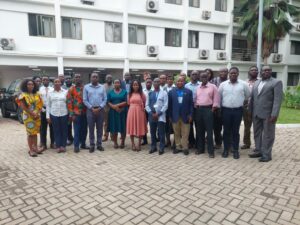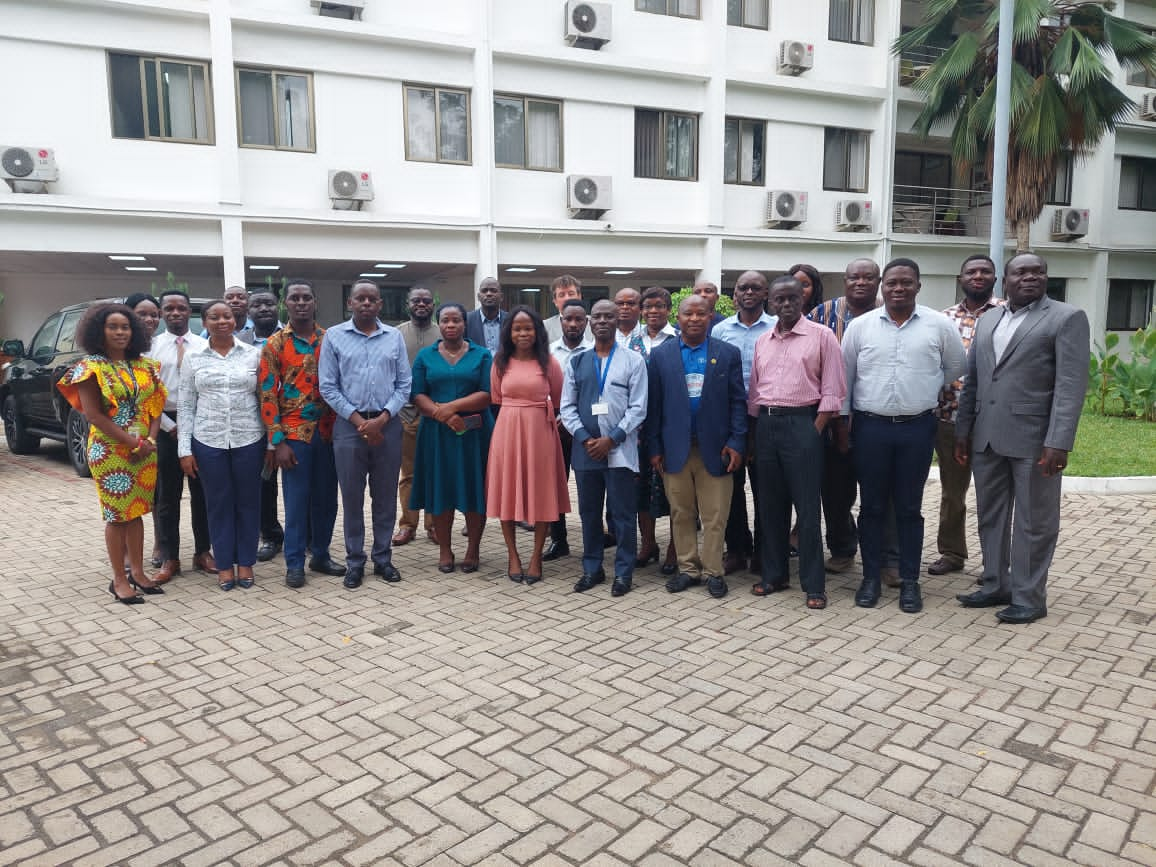
Accra, Ghana//-The Food and Agriculture Organization of the United Nations (FAO) has called for responsible uses of antibiotics to curb the rising antimicrobial resistance (AMR) deaths in Africa and across the world.
According to FAO officials, the irrational use of antimicrobials leads to antimicrobial resistance, which is a rather deadly phenomenon.
This is because when the bugs are resistant, they fail to respond to the antimicrobials, the patient ‘s condition worsens, and the patient is likely to die if an alternative and effective antimicrobial is not found in time to treat the resistant infection, according to experts.
What are antibiotics
Antibiotics are drugs used for management of infections, but their misuse has rather become toxic to humans, animals, and the environment.

Dr Irene Ouoba, Regional Antimicrobial Resistance Project Co-ordinator at FAO Regional Office for Africa (FAO-RAF) passionately made the call at the opening of a two-day FAO Progressive Management Pathway for AMR (FAO-PMP for AMR) workshop in Accra.
She disclosed that, in 2019 almost 5 million people had died in the world as a result of diseases associated with microbes’ resistance to antibiotics. So, humans
Dr Ouoba therefore advised people to use antibiotics wisely and responsibly. “This is because the statistics say by 2050, if we don’t do anything, about 10 million will die in the world as a result of AMR”.
“However, in 2019, almost 5 million already died. So, you think that we need to wait for 2050 to get the 10 million, I think we are already there.
So, we really need to use antibiotics responsibly to limit the occurrence of the AMR diseases across the world”, she stressed.

Ghana AMR situation
When asked about the Ghana AMR situation, Dr Ouoba stated that FAO Africa covers 47 countries in Sub-Saharan Africa including Ghana and she said AMR is quite critical in Ghana.
“But what is good about Ghana is that it is one of the countries that is advanced in controlling AMR, at least in Africa. So, when comparing Ghana to other countries, I can’t give an exact figure, but the AMR challenges are in Ghana too.
Why the workshop
The workshop according to her is critical because the World Health Organisation (WHO) has developed what they called the Global Action Plan to try to help the mitigation of AMR in the world. From that plan, countries are advised to develop their own national action plans to try to mitigate AMR at their levels.
“However, at that time, the understanding of AMR was not up to standard. So, countries developed their national action plans how they could.
But later, we realized that some sectors and some activities were missing, and the countries faced the problem of financial support to really implement their plans.
So, this workshop is very crucial because it is an assessment to try to see Ghana’s National Action Plan (NAP) document on AMR itself, where it stands, what is missing, and how we can improve it”, Dr Ouoba explained.
Also, the national stakeholders really identify the key priority activity that needs to be implemented in Ghana to mitigate AMR.
You see, we can have different activities but what is key, what is priority should come from the country and then whoever wants to support should support based on the country’s priority and not from our own perspective. So, this is why the workshop is very critical”.
FAO-PMP for AMR tool
According to her, the PMP tool could be used to reduce the spread of AMR diseases in the world. The PMP tool is mainly done for the food and agriculture sector, but they factor part of the public and human and health.
“You know that all organisations have their mandates: WHO has the human health mandate, while we (FAO) have our mandate. So, we developed the tool for our sector.
But of course, we need human health that is why we have WHO here and the public health people here so that we can use it together and come out with very good recommendations that will support Ghana in the One Health approach-everybody is included”.
Koen Mintiens, AMR Proramme Specialist of Animal Health Service at the Animal Production and Health Division of FAO headquarters in Rome, Italy who was of the key facilitators of the workshop, said the PMP was launched in Ghana in 2019 “so it was proper to start the review here”.
Dr Kofi Fakye, FAO’s National AMR Coordinator for Ghana noted that Ghana did not hesitate to be one of the first countries globally to pilot this tool in 2019, barely two years ago into the implementation of NAP.
Since its pilot phase, the PMP tool has been perfected over time and it is now very robust. The Ghana NAP has also been implemented over the years and is being reviewed after its first implementation phase ended in 2022.
“The timing is therefore appropriate to use the PMP tool once again to assess the progress in the stepwise implementation of the NAP and to inform the next moves in its course of implementation, especially in the food and agriculture and environment sectors. This does not mean that the other sectors are left out”.
Presenting a progress report on the Ghana NAP on AMR, Head of Ghana AMR Secretariat, Dr Saviour Yevutsey said FAO has played a crucial role in the implementation of the Ghana NAP.
Ghana, through its vibrant AMR platform with representation across all relevant sectors and groupings, has since 2017 developed a policy document on AMR and accompanying NAP for implementation.
The objectives of the NAP according to him are set to reduce AMR incidence through prudent antimicrobial use in humans, terrestrial, and aquatic animals and plants used as food, and the environment.
The Ghana NAP which expired in 2022 was reviewed at the workshop by the participants while plans were advanced to begin the second Ghana NAP.



